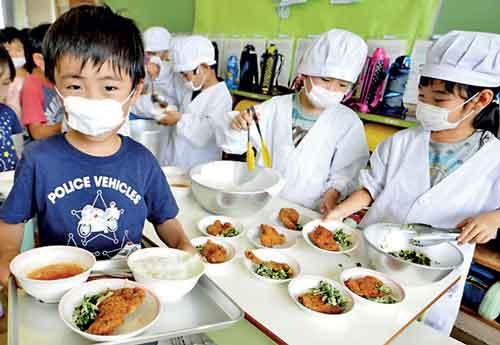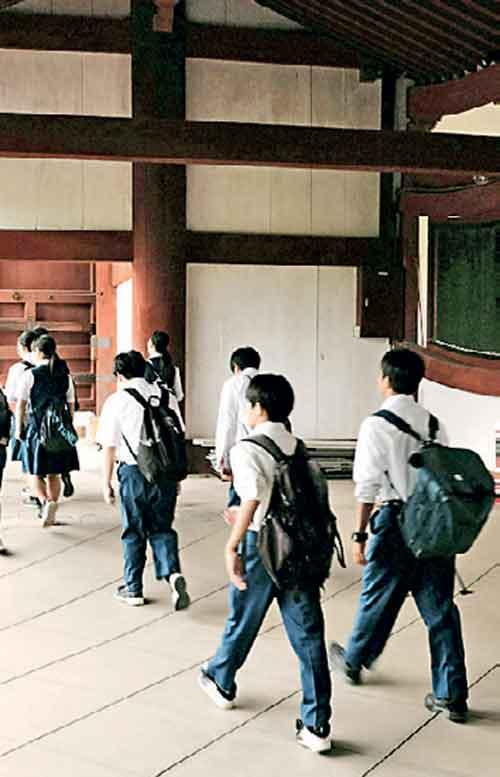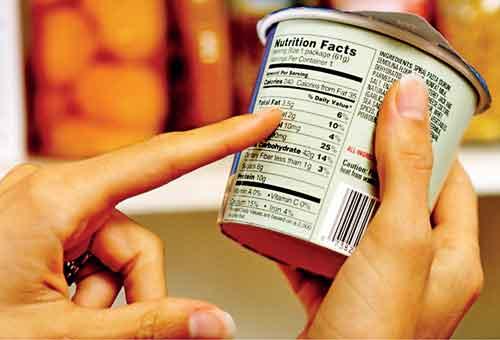 In the face of rising obesity rates, diet-related illnesses, and sedentary lifestyles, it is becoming increasingly urgent for Sri Lanka to prioritise nutrition education. Countries like Japan and South Korea offer valuable lessons in how structured, culturally embedded food and health education can transform public health outcomes. These nations have invested in preventative, school-based, and culturally-rooted approaches to foster healthier generations and it’s time we learn from them.
In the face of rising obesity rates, diet-related illnesses, and sedentary lifestyles, it is becoming increasingly urgent for Sri Lanka to prioritise nutrition education. Countries like Japan and South Korea offer valuable lessons in how structured, culturally embedded food and health education can transform public health outcomes. These nations have invested in preventative, school-based, and culturally-rooted approaches to foster healthier generations and it’s time we learn from them.
Food Education Begins at the Dining Table
Japan is perhaps one of the best examples of how a national commitment to nutrition education can profoundly shape eating habits and health. Central to their approach is “Shokuiku,” a formal food education program introduced in schools, which teaches children about nutrition, food origins, and balanced meals. The idea is not simply to eat healthily but to understand food, its role in culture, body health, and sustainability.
In Japanese schools, there are no cafeteria buffets or sugary lunch boxes. Children are served a standardised, balanced meal, developed by on-site school Nutritionists. These professionals are responsible not just for creating the menus, but also for working with public health bodies to ensure all nutritional standards are met.

Students eat together in their classrooms, not in noisy canteens, with teachers sitting among them in small groups, just like a family. Meals are served by students themselves, and they participate in cleaning up afterward. This practice fosters appreciation, reduces food waste, and creates an environment where food is respected.
Schools often incorporate nutrition education into daily routines, broadcasting the day’s lunch breakdown, teaching food group sorting games, and integrating food topics into science and social studies. The result? A generation that understands what it eats and why.
Japan’s commitment to school lunches and food education has had a measurable impact. The country has one of the lowest childhood obesity rates in the developed world and an exceptionally high life expectancy. These outcomes are not accidental; they are built on the back of systemic investment in food education.
Label Literacy and Lifestyle Integration
South Korea takes a similarly proactive stance. The country enforces strict food labeling laws, regulates junk food advertising, especially to children, and encourages regular physical activity through its urban planning and daily routines.

Exercise isn’t treated as a luxury; it’s built into daily life. Culturally, Koreans also maintain smaller portion sizes, eat communal meals at a slower pace, and often rely on traditional, whole foods.
This cultural emphasis on prevention rather than cure has contributed to relatively low obesity rates and a strong public understanding of nutrition and lifestyle balance.
Where we are Going Wrong?
In contrast, Sri Lanka lags significantly behind in nutrition education and preventive health strategies. There is no structured food education in schools, and little emphasis on balanced meals. School tuck shops and workplace cafeterias often serve deep-fried, sugary, and ultra-processed foods with no oversight or nutritional standards.

There are no strict food labeling laws, and many consumers do not know how to read or understand the information presented. Misleading health claims on packaging go unregulated, and there is no widespread education on the traffic light labeling system that could help consumers make informed choices.
As a result, unhealthy dietary patterns: large portion sizes, fast eating, sedentary work routines, and screen-time meals are becoming the norm. This has implications not just for obesity and non-communicable diseases, but also for mental health, academic performance, and workforce productivity.
The Way Forward for Sri Lanka
If we are to reverse this trend, we must treat nutrition education as a national priority.

Here’s what Sri Lanka needs to consider:
- Introduce a national nutrition curriculum in schools that teaches the fundamentals of balanced eating, food groups, label reading, and sustainable food practices.
- Appoint trained school nutritionists to oversee school meals, provide personalised support, and liaise with public health departments.
- Create guidelines for tuck shops and canteens
- Support a culture of movement
- Engage parents, teachers, and employers in the nutrition conversation to create a whole-community approach.
A Cultural Shift Toward Health
Beyond policies, what Sri Lanka needs is a cultural shift - toward mindful eating, appreciation of food, and integration of movement into daily life. Nutrition education is not just about eating your vegetables. It’s about empowering the next generation to make informed, lifelong decisions that can prevent disease, reduce healthcare costs, and improve quality of life.
The success of Japan and South Korea shows that change is possible but it must start with education, policy, and culture working hand in hand. It’s time for Sri Lanka to invest in its future, one balanced plate at a time.











